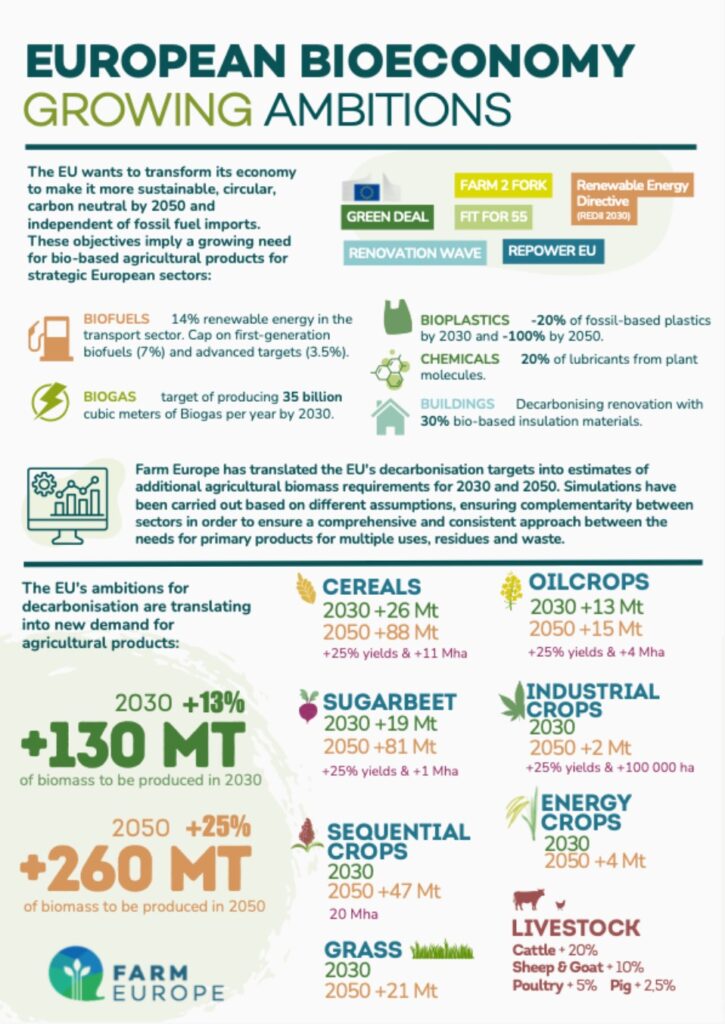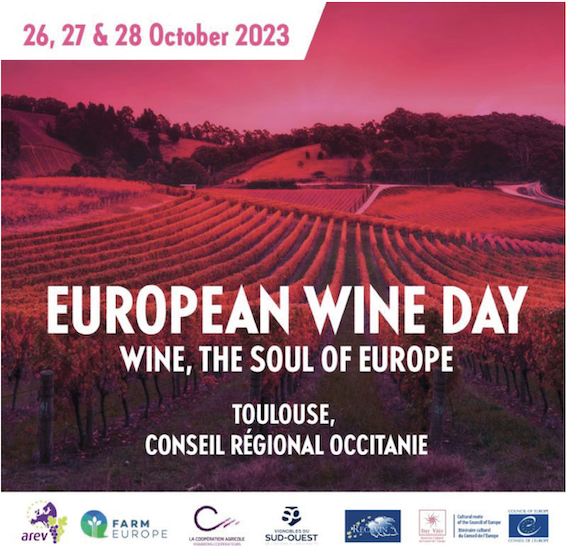On the occasion of the Global Food Forum opening on May 12th — marking its 10th anniversary — Farm Europe will unveil the updated version of its radar on the sustainability and sovereignty of EU food systems. A new indicator will be introduced, highlighting the erosion of traditional strongholds of European agriculture — particularly arable crops and livestock. This trend is linked to worsening socio-economic indicators, despite continued improvements in environmental performance.
The Forum, which gathers over 150 political and economic leaders in European agriculture, will focus on concrete strategies to “restart the sustainable growth engine of European agriculture” and respond to the increasing demand for agricultural products both within Europe and globally. According to Farm Europe’s analysis, agricultural production in Europe will need to grow by 13% by 2030 and 25% by 2050 to lay the foundation for real strategic autonomy on the continent.
The long-term sustainability and sovereignty radar is an analytical tool that evaluates the ongoing dynamics and health of the EU’s agricultural and food sectors through 12 dynamic indicators and 12 status indicators.
It shows that the European Union remains an agricultural power, with a solid trade balance in food products — both plant- and animal-based. Additionally, environmental transitions are well underway, with positive trends in indicators related to the use of harmful phytosanitary products and emissions.
However, the main weaknesses remain socio-economic indicators. Agricultural incomes continue to decline, and restrictive policies are limiting the capacity of European agriculture to meet demand for animal feed and bioeconomy raw materials.
Deterioration of Historic Strengths
Beyond overarching trends, the new indicator unveiled at the Forum reveals recent developments. It highlights a rapid decline in agricultural sovereignty indicators in areas where the EU has traditionally been strong: cereals and meat. Socio-economic indicators continue to worsen, with accelerated restructuring and falling farm incomes, despite a slight increase in household food budgets.
On the environmental front, indicators show ongoing improvement. Emissions from production are decreasing, the shift in the structure of pesticide sales continues, and water quality is improving — though the challenge is now shifting to water availability. However, the decline in livestock farming is causing loss of grasslands and associated carbon stocks. Contributions to the bioeconomy are mixed: while biogas production is growing, strong import pressures are undermining EU bioenergy production and its strategic autonomy.
These trends are closely tied to global geopolitical dynamics, climate change challenges, ongoing structural transformations in the agricultural sector, and political choices made in recent years by the European Union. Reversing these trends is an urgent matter. Farm Europe estimates that EU agricultural production must increase by 13% by 2030 and 25% by 2050 to meet the needs of a decarbonized economy.
Recent years have seen a decline in public investment at the EU level, including an €85 billion reduction in Common Agricultural Policy funding during the 2021–2027 period (in real terms compared to 2020). Inflationary shocks have only been partially offset by national measures, and unevenly across EU Member States, leaving some countries lagging behind.
In this context, Farm Europe is calling for a genuine recovery plan for European agriculture, involving the mobilization of necessary budgetary resources and better alignment of all EU policies affecting agriculture — to trigger a sustainable intensification of production.



